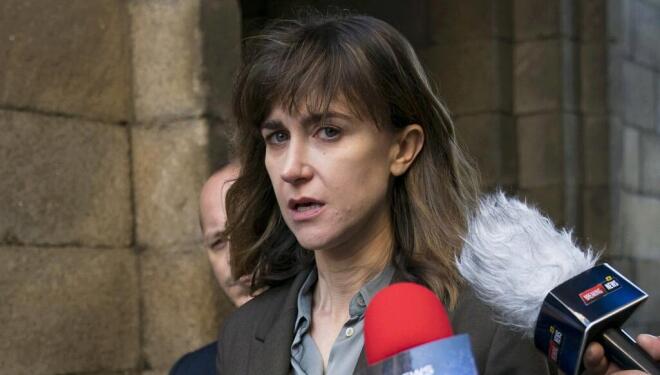
More and more, TV series such as Sex Education, I May Destroy You and Special are aiming to educate as much as entertain. These shows spell a new era for openness and acceptance in stories on screen. The brilliant millennial comedy-drama Feel Good – co-created by and starring the comedian Mae Martin – often feels too small to make a massive dent in the zeitgeist, but deserves to make some impact.
The first season was lauded on its release, even though Channel 4 eventually handed the show over to Netflix. The story followed the Canadian stand-up Mae (Martin, playing a fictionalised version of herself) as she nurses her addiction issues and embarks on a new relationship with George (Charlotte Ritchie), a posh and bi-curious Brit who’s afraid of coming out.
Season two picks up after their sort-of break-up, where neither of them is 100% sure that they’re still together. It’s one of their many puerile errors: miscommunication, or no communication at all. This plays into Mae’s revelations when returning to Canada in the first episode, entering rehab again after relapsing. Her enigmatic past threatens to bubble up to the surface, but Mae continues to repress and avoid it.
Mae also struggles to navigate a post-#MeToo environment, diving into many complicated emotions. Martin and co-writer Joe Hampson examine this new, enlightened consciousness and poke at its flaws, showing how victims and survivors are exploited for profit. As George’s underappreciated flatmate Phil (Phil Burgers) says, it’s ‘commodifying pain for giggles’.
But thankfully, there are many giggles in the pain. Martin and Hampson never skirt around the comedy, which masks, relieves, and lightens the hardness of the drama. It gives the series a riveting genuineness, and that spills into the natural, absorbing central performances from Martin and Ritchie.

Photo: Netflix
Feel
Good also captures that 20-something resistance to pursuing long-term wants and desires. George is a schoolteacher
who’s constantly torn between Mae, her career, and opportunities
outside her day-to-day existence. Fellow teacher Elliott (Rizzle Kicks’ Jordan Stephens)
represents those new ideas, new potentials, as well as being a woke and liberal beacon in her
life.
This wokeness isn't impervious to scrutiny either. It even dips into funny and relatable satire, as George tries to grip the debates around gender and sexuality.
And despite these strivings for inclusion, every character is self-absorbed and narcissistic in their own way. But the writing treats them with deeply human understanding and empathy. Their flaws, for the most part, aren't indictments; they're something to work on. Season two revels in those infinite nuances, the idea of a ‘definite’ being challenged at every turn. The compromises feel so real, especially in Mae’s confusions about her gender identity.
It’s a shame that this is the end of Feel Good. For this critic, it's like Martin and Hampson have so much more to say. You sense a hurried effort to open, re-open and close various avenues in this season. Regardless, it’s still a funny, sad and heartfelt achievement. Like a therapeutic hug.
Feel Good, season 2, is available on Netflix from Friday 4 June
| What | Feel Good, season 2, Netflix review |
| When |
04 Jun 21 – 04 Jun 22, ON NETFLIX |
| Price | £n/a |
| Website | Click here for more information |






